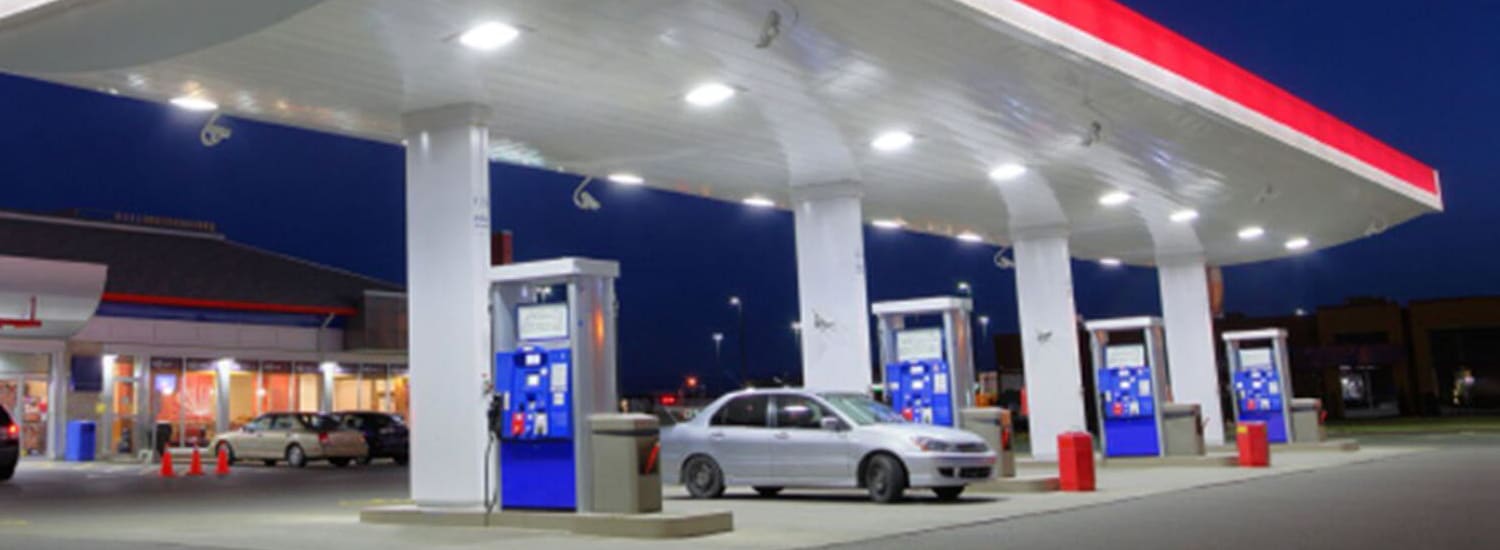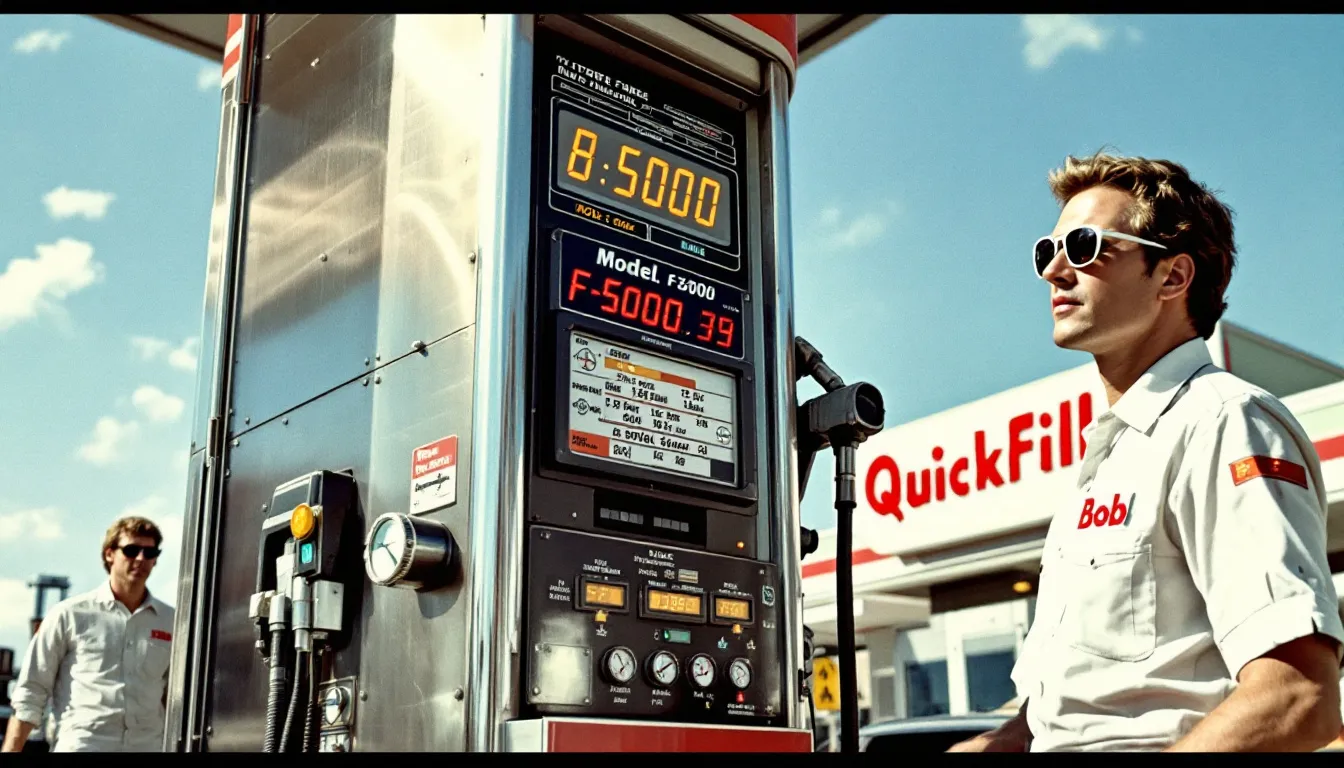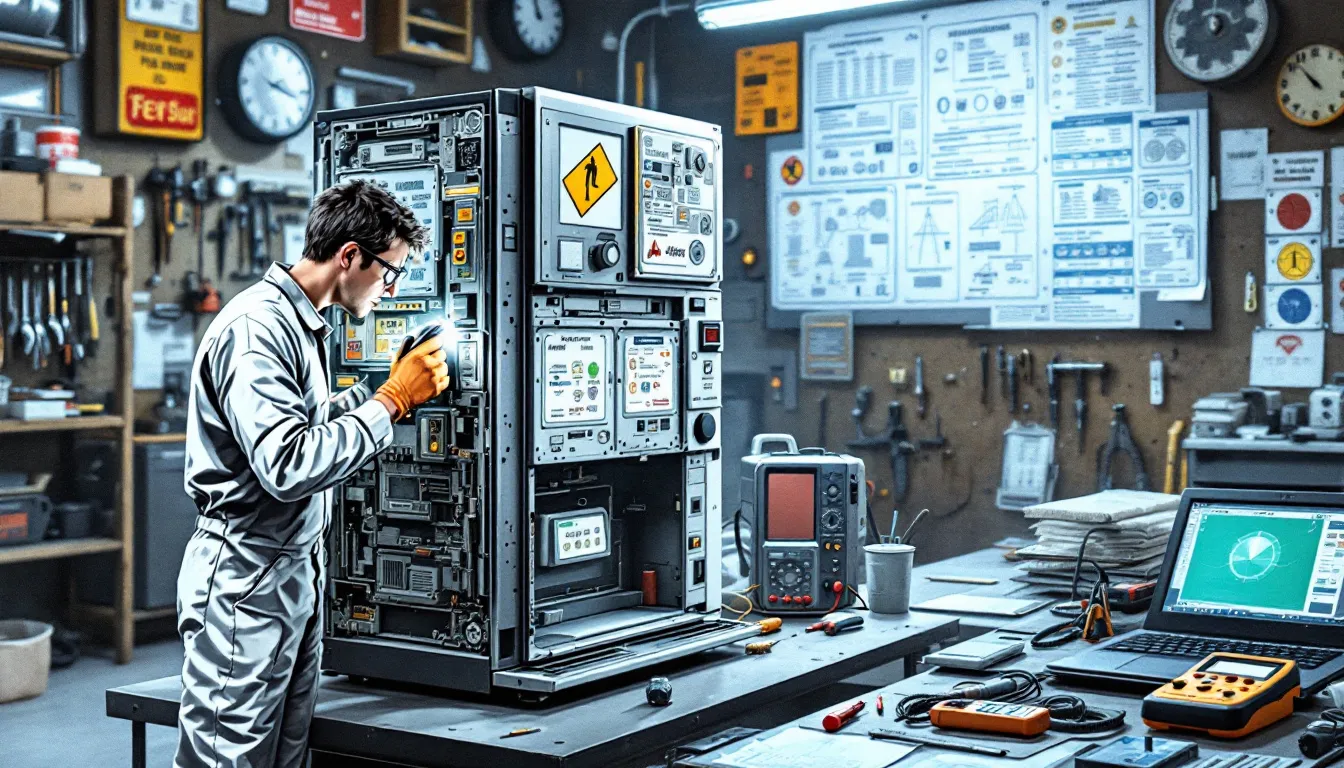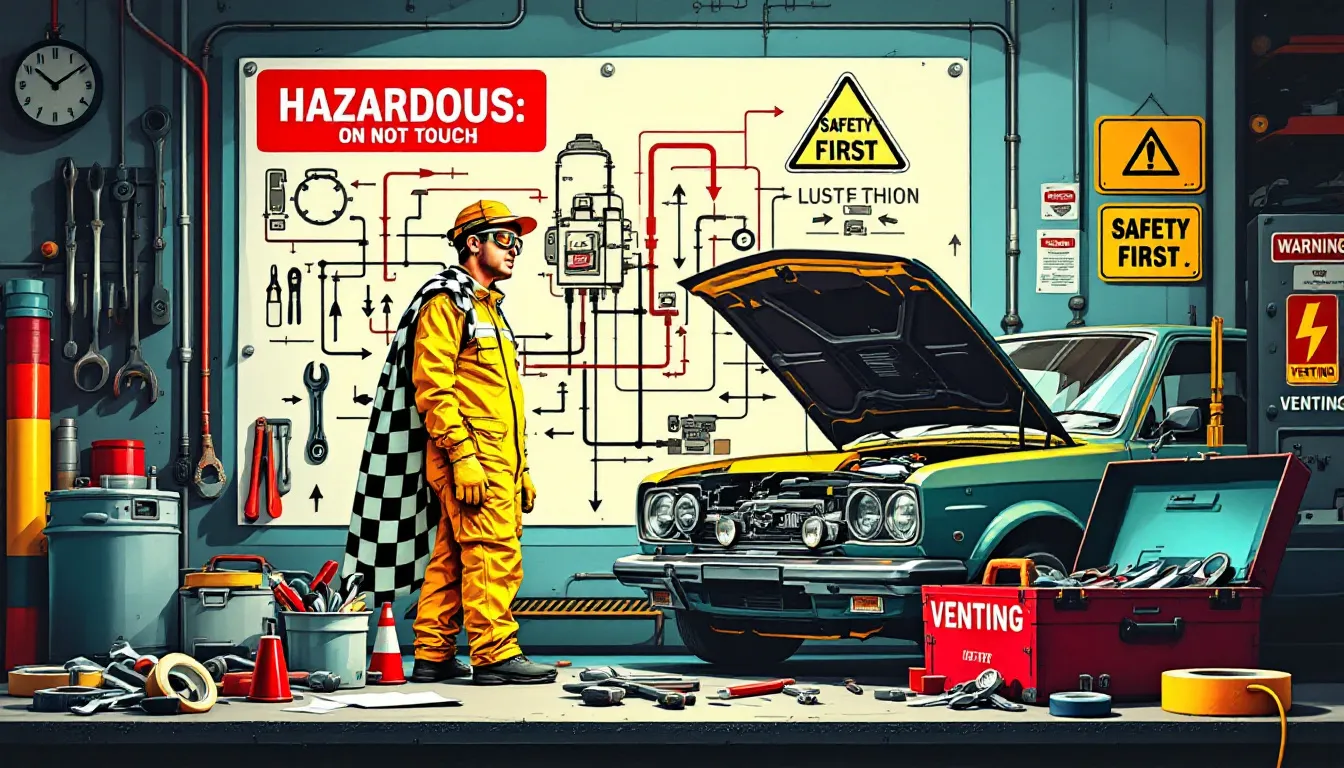
Top Tips for the Proper Maintenance of Fuel Pumps
Key Takeaways
Regular inspections and maintenance of fuel pumps and filters are critical for operational efficiency and preventing costly repairs.
Monitoring Underground Storage Tanks (USTs) and Under Dispenser Containment (UDC) systems is essential for environmental safety and compliance with regulations.
Partnering with professional maintenance providers enhances the longevity and reliability of fuel systems, ensuring compliance and improved customer service.
Regular Inspections of Fuel Pumps
Regular inspections help identify and address potential issues before they escalate into significant problems. Weekly visual inspections of fuel dispensers, nozzles, and hoses are a must. These inspections help detect signs of wear or damage early, allowing for timely repairs or replacements. This practice prevents minor issues from becoming costly repairs or causing downtime.
Besides visual inspections, regularly scheduled fuel filter changes maintain optimal fuel pump performance. Filters keep fuels free from contaminants that can clog the system and affect the flow rate. Adhering to a strict maintenance schedule ensures that your fuel pumps deliver high performance, keeping your gas station running smoothly.
Prioritizing regular inspections and maintenance enhances operational efficiency and builds a reputation for reliability among customers. After all, a well-maintained pump is less likely to fail, ensuring that your customers always receive the best service.
Maintaining Fuel Filters
Fuel filters are the unsung heroes in the fuel pump maintenance process. Regularly replacing fuel filters helps maintain pump efficiency and prevents contamination. A clogged filter can severely compromise the performance of the fuel pump, leading to reduced flow rates and increased wear on the pump components. Therefore, routine inspection of fuel filters is paramount.
Regularly changing the fuel filter prevents clogs that might lead to stalling or reduced engine performance. This not only ensures that the fuel pump operates efficiently but also enhances the overall efficiency of the vehicle’s fuel system. Clean filters mean cleaner fuel, which translates to better engine performance and longevity.
Fuel filter maintenance is more than just replacing them when dirty. It involves a proactive approach to inspect them routinely and replace them before they become a problem. This sustains the high fueling performance customers expect from your gas station.
Monitoring USTs and UDCs
Underground Storage Tanks (USTs) and Under Dispenser Containment (UDC) systems are critical components that require regular maintenance to prevent leaks and ensure integrity. Regular monitoring of USTs detects leaks early and prevents environmental contamination. Checking overfill alarms promptly identifies leaks, avoiding potential hazards.
Regular checks for water intrusion in USTs maintain environmental safety. UDC systems must be inspected to ensure they effectively hold any potential leaks from dispensing equipment. Diligent maintenance of these systems helps gas stations avoid costly environmental fines and ensures safe operations.
Ensuring High-Speed Performance

High-speed fuel dispensers are a boon for busy gas stations, especially those that cater to high-volume truck islands. These diesel dispensers should be powerful, efficient, durable, and feature a user-friendly display alongside the latest metering technology. The Wayne Reliance™ E-123 fleet fuel dispenser, for instance, is cost-effective and efficient, providing reliable operation with advanced features such as remote monitoring and diagnostics.
A great fueling experience increases the likelihood of customer return and additional purchases inside the store. High-speed performance is crucial for maintaining customer satisfaction and ensuring that your gas station can handle peak times efficiently with ultra high fueling performance.
High-speed performance requires not just the right equipment but also proper maintenance. Regular maintenance and timely upgrades can keep your dispensers running at optimal speed, ensuring a smooth and efficient fueling experience for your customers.
Keeping Dispensers in Optimal Condition

Regular checks keep dispensers in optimal condition. This includes visual inspections for damage and leak detection. Monthly checks should focus on inspecting the pump and motor for any signs of wear. These routine inspections help identify issues early, preventing them from escalating into major problems.
Professional servicing by certified technicians is recommended for detailed maintenance. These experts can perform thorough inspections and repairs, ensuring that the dispensers are calibrated correctly and functioning efficiently. Calibration verification is essential to ensure the dispenser’s accuracy, which is crucial for maintaining customer trust and avoiding financial discrepancies.
Avoid harsh cleaning agents, particularly ammonia-based cleaners, as they can damage the fuel pumps. Instead, use recommended cleaning solutions and methods to keep the dispensers clean without causing harm. By keeping your dispensers in optimal condition, you can ensure a smooth and efficient operation at your gas station.
Addressing Potential Issues Promptly
Identifying and addressing potential issues promptly is critical for maintaining the efficiency and safety of fuel pumps. Fuel pump failure can often cause the vehicle not to start at all. Issues with the fuel pump relay can prevent the engine from receiving fuel, leading to starting problems. Electrical issues can disrupt the fuel pump’s performance, often manifesting as stalling or difficulty in starting the vehicle.
Low fuel pressure can lead to rough idling, decreased power, and stalling situations in vehicles. Using high-quality fuel is essential to avoid contaminants that can harm the fuel pump and filter. Inspecting all nozzles and connections prevents leaks and ensures safety during fuel pump operations.
Regular examination of breakaways ensures they function correctly in emergencies, enhancing safety at fuel stations. Additionally, checking the condition of the hose retractor and inspecting dispenser door gaskets for potential security breaches are vital parts of safety checks. Promptly addressing these issues helps maintain a safe and efficient fueling environment.
Partner with Experts for Reliable Maintenance
Partnering with professional maintenance providers is a wise investment for gas station owners. These experts can identify hidden issues in fuel pumps that may not be apparent to untrained individuals. Professional maintenance ensures the longevity, efficiency, and safety of fuel pumps, contributing to a consistent brand image and reliable operations.
Implementing effective fuel management strategies, including accurate meter calibration and employee training, is crucial for minimizing fuel wastage. Establishing strong partnerships with fuel suppliers can enhance gas station operations, providing access to better pricing and more reliable fuel supply.
Owners of USTs are obligated to maintain records of leak detection tests and any maintenance performed to demonstrate compliance. Partnering with experts ensures thorough and compliant maintenance practices, leading to better service for customers and smoother operation overall.
Safety Measures in Fuel Pump Maintenance

Safety is paramount in fuel pump maintenance. Regular maintenance ensures safety by preventing leaks and malfunctions in fuel equipment. Maintaining fuel equipment reduces the risk of leaks and spills, preventing environmental damage. Compliance with safety regulations can be maintained through regular inspections of fuel dispensers.
The Environmental Protection Agency (EPA) requires UST systems to have leak detection methods installed to comply with safety regulations. Leak detection devices must be tested regularly to confirm their functionality and to ensure they can identify leaks accurately. Training staff in routine checks helps identify equipment problems early, enhancing overall safety.
Regular maintenance is necessary to ensure calibration seals are intact and display accurate information. Adhering to these safety measures ensures a safe and compliant operation, protecting both the environment and customers.
Efficient Operations for Gas Stations
Efficiency is the backbone of successful gas station operations. Well-maintained fuel dispensers enhance operational efficiency and ensure accurate fuel measurements. Engaging professional maintenance services helps mitigate operational downtime, preserving revenue and enhancing customer satisfaction.
Integrating a wireless barcode system allows for efficient control and monitoring of fuel dispensers, enhancing operational speed. Real-time monitoring of fuel pumped and vehicle inventory helps optimize fueling operations and reduces delays. Automatic authorization for fuel dispensing ensures that only approved vehicles and drivers can access fuel, reducing the risk of errors.
Presetting pump quantities based on vehicle specifications allows for faster filling times and improved efficiency at fueling stations. Preventing fuel fraud is vital for protecting gas station inventories, achieved through surveillance systems and strict access controls. By focusing on efficient operations, gas stations can provide better service and maximize their profitability.
Summary
Maintaining fuel pumps is a multifaceted task that requires attention to detail and a proactive approach. Regular inspections, proper filter maintenance, monitoring underground systems, ensuring high-speed performance, and addressing potential issues promptly are all critical steps in this process. Partnering with experts and adhering to safety measures further enhances the reliability and efficiency of gas stations.
By implementing these best practices, gas station owners can ensure smooth operations, increase customer satisfaction, and protect their investments. Remember, a well-maintained fuel pump is the key to a successful and profitable gas station.
What are USTs and UDCs, and why are they important?
USTs (Underground Storage Tanks) and UDCs (Under Dispenser Containment) are essential for the safe storage and dispensing of fuel, as they minimize the risk of leaks and environmental contamination through regular monitoring and maintenance. Their importance lies in protecting both public health and the environment.


